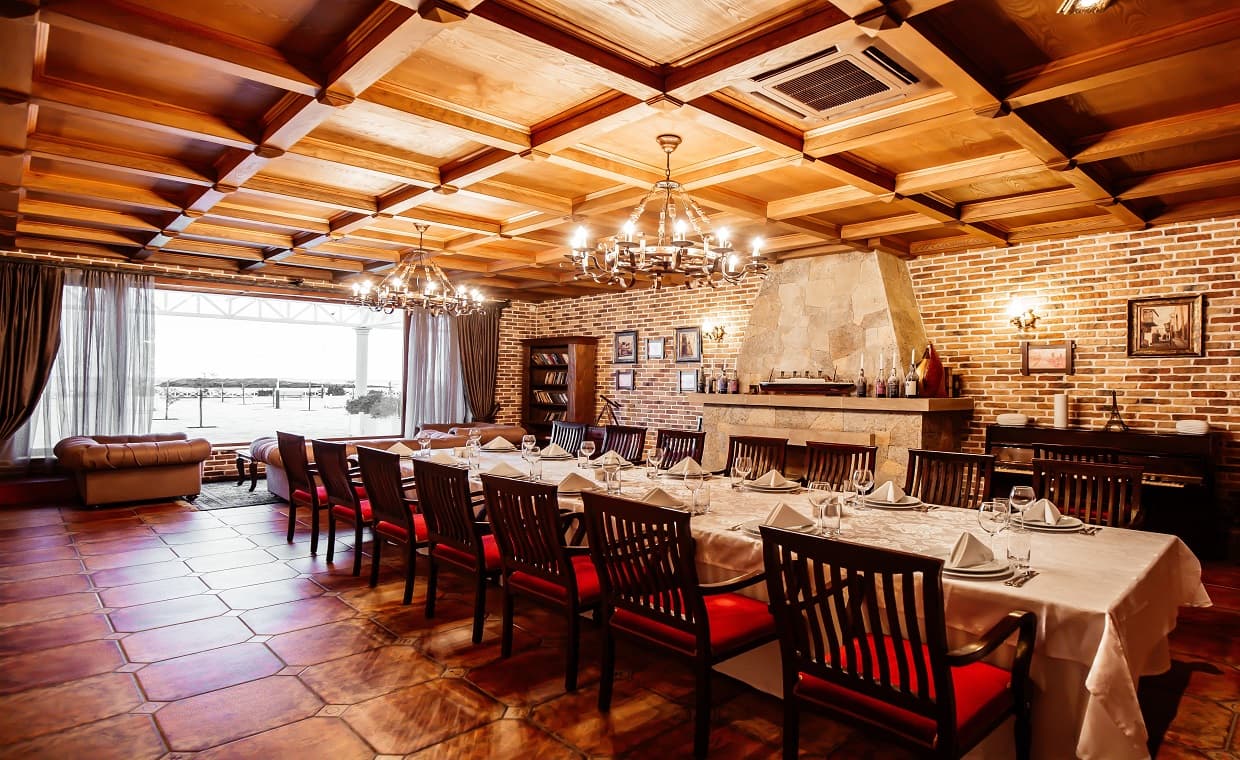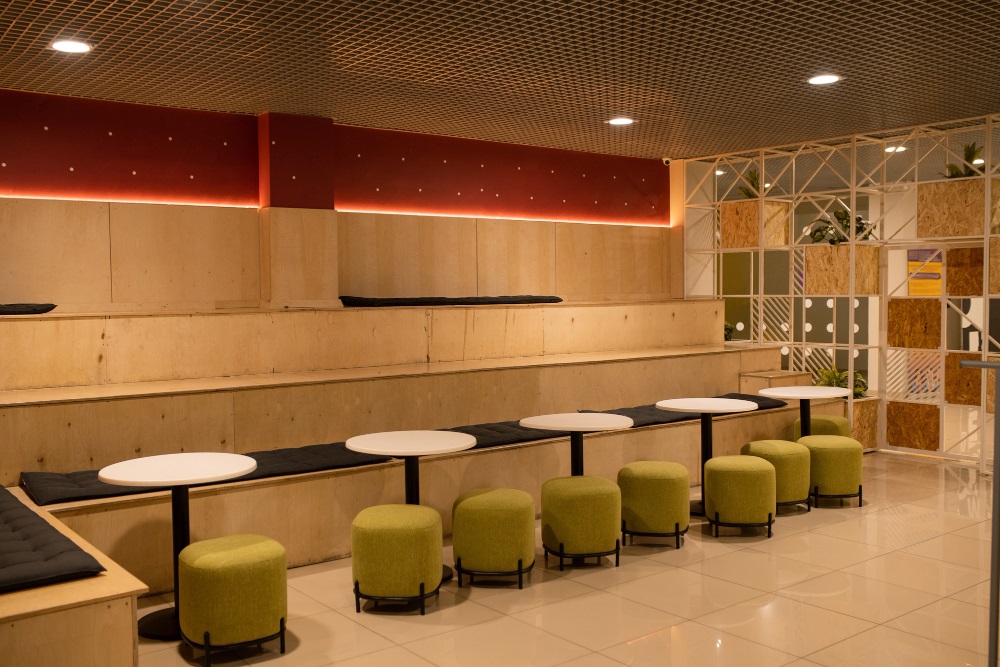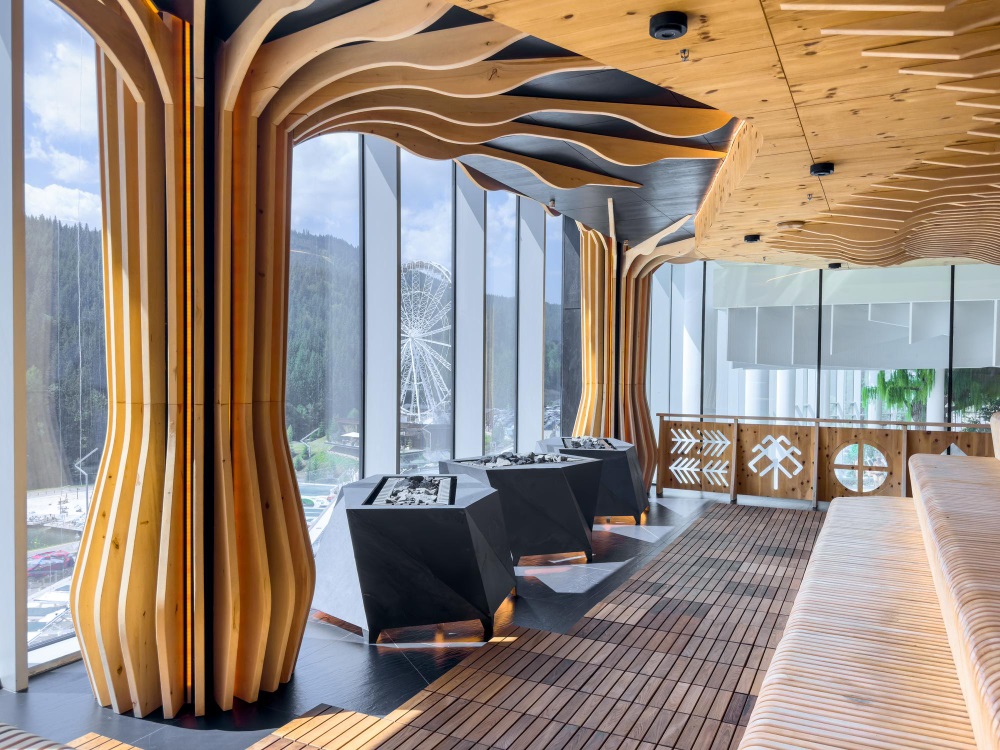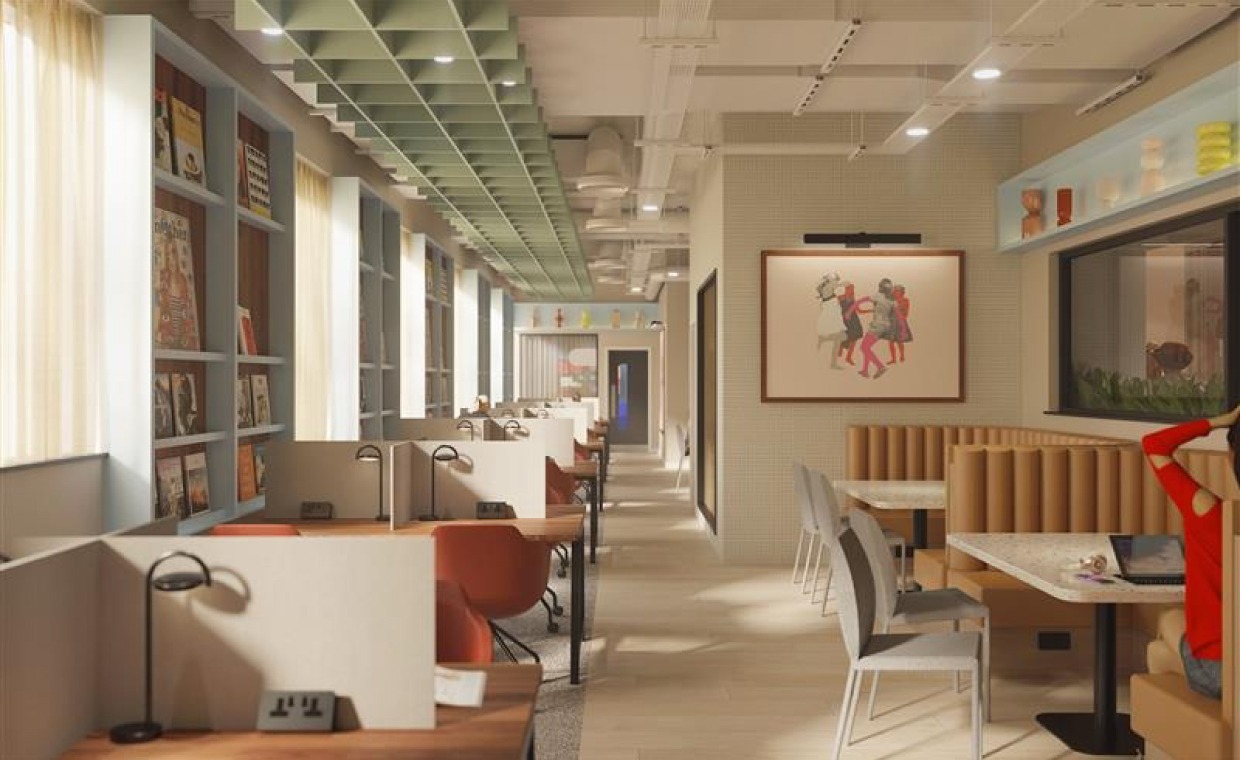
Table of Contents
Quick Summary
- Explains why restaurant acoustics are crucial for customer comfort and staff well-being.
- Highlights how poor sound quality can lead to stress, negative reviews, and reduced service quality.
- Covers trends such as sustainable acoustic materials, stylish design elements, and smart sound systems.
- Provides practical solutions: installing acoustic panels, choosing fabric-covered furniture, and planning a smart restaurant layout.
- Emphasizes that improving sound does not require complicated changes simple steps can create a welcoming dining environment.
If you’ve ever sat in a restaurant where you could barely hear your dining companion over the noise, then you know how important good acoustics are. Poor sound quality can not only ruin the atmosphere but also drive customers away. Fortunately, there are specialized solutions available that absorb sound and optimize acoustics. In this article we will explain why acoustics are so important and how you can improve the sound experience in your dining establishment.
Why are Acoustics Important?

A restaurant isn’t just about good food; it’s also about the overall experience. Sound plays a crucial role in this. Too much noise can cause stress and make conversations difficult, while too little background noise can feel awkward. Finding the right balance is essential.
Impact on Customer Satisfaction
Imagine planning a cozy dinner but constantly having to shout to be heard. This can be quite frustrating and even lead to negative reviews. Good restaurant acoustics ensure that guests can relax and enjoy their meal without being annoyed by disruptive sounds.
Effect on Staff
It’s not just customers who benefit from good acoustics; staff do too. Less noise means less stress and a more pleasant working environment, which ultimately leads to better service.
Trends in Restaurant Acoustics

The world of acoustic solutions is constantly evolving. Here are some trends currently popular in the hospitality industry:
Sustainable Materials
More and more restaurants are opting for eco-friendly materials like recycled felt or bamboo for their acoustic panels. These materials are not only good for the environment but also look stylish.
Design and Functionality
Modern acoustic solutions combine effectiveness with aesthetics. Think of beautiful wall panels that seamlessly blend into the interior or artistic ceiling panels that also dampen sound.
Technological Innovations
Smart systems can automatically measure and adjust sound levels. This ensures that the noise level is always optimal, no matter how busy it gets. These technologies use sensors and advanced algorithms to create a consistently pleasant sound environment.
Practical Solutions for Your Restaurant
Now that you know why acoustics are important and what trends are out there, you might be wondering how to apply this in your restaurant. Here are some practical tips:
Use Acoustic Panels
Acoustic panels are an excellent way to absorb sound without compromising the aesthetics of your space. They can be installed on walls or ceilings and come in various styles and colors.
Furniture and Upholstery
Choosing the right furniture can also help improve acoustics. Fabric upholstery, for example, absorbs more sound than hard surfaces like wood or metal.
Smart Layout
The layout of your restaurant plays a significant role in acoustics as well. By strategically placing tables and using partitions, you can better control noise levels.
Improving the acoustics in your restaurant doesn’t have to be a complicated task. With the right knowledge and products, you can quickly create a pleasant environment where customers love to return.
Also Read: Top Affordable Methods to Effectively Soundproof Your Home Office
FAQs: Restaurant Acoustics
01. Why are restaurant acoustics important?
Good acoustics reduce noise, improve conversation, and enhance the overall dining experience.
02. What are common solutions for noise control in restaurants?
Acoustic panels, fabric furnishings, and strategic table layouts help absorb and manage sound.
03. Are sustainable materials effective for acoustic treatment?
Yes, recycled felt and bamboo panels both reduce noise and support eco-friendly design.
04. How do smart sound systems work?
Sensors monitor noise levels and automatically adjust sound absorption or background music.
05. Can improving acoustics increase customer satisfaction?
Absolutely guests enjoy a more comfortable atmosphere, leading to positive reviews and repeat visits.






























